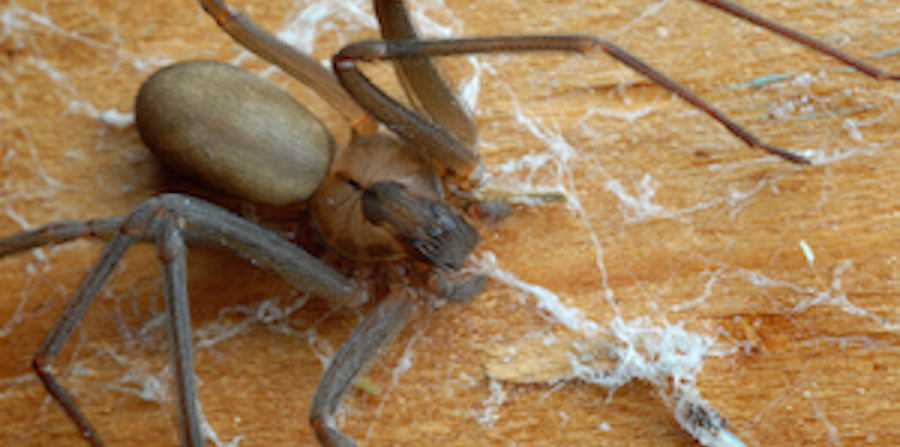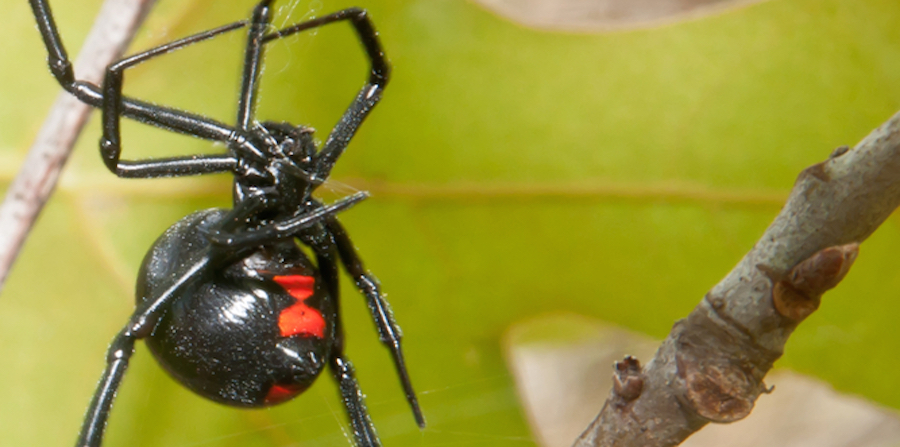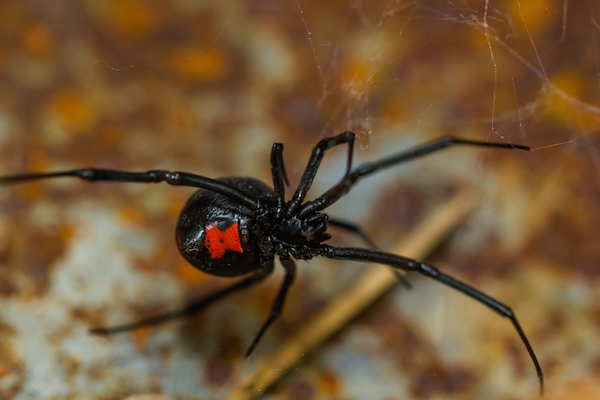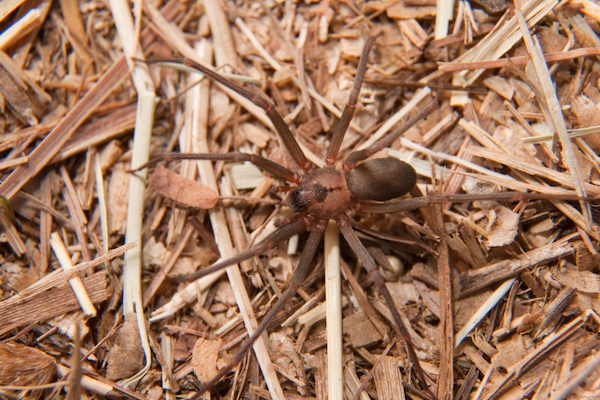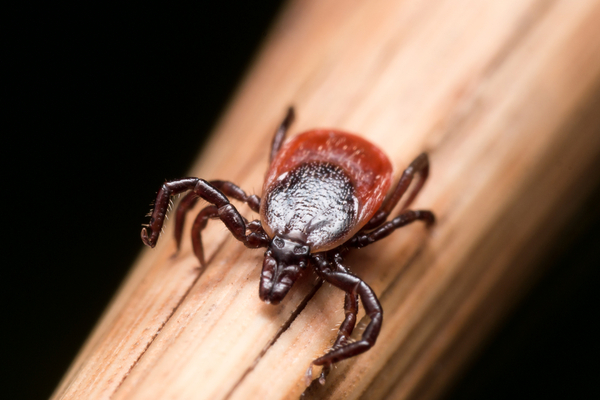Michigan is home to more of the scariest pests around than you might imagine. We play host to venomous spiders, aggressive predators, and something called an ASSASSIN BUG. These pests are different species, live in different environments, and want different things. The only thing they have in common is they all terrify.
These four Michigan-infesting baddies aren’t the most common, destructive, or even dangerous pests we contend with. Not this time. No, these pests are simply the pests we’d least like to find underneath a couch cushion or… in our beds. “We ain’t afraid of no pests,” of course, but even the hardest professional would think twice about approaching these top four scariest pests in Michigan:
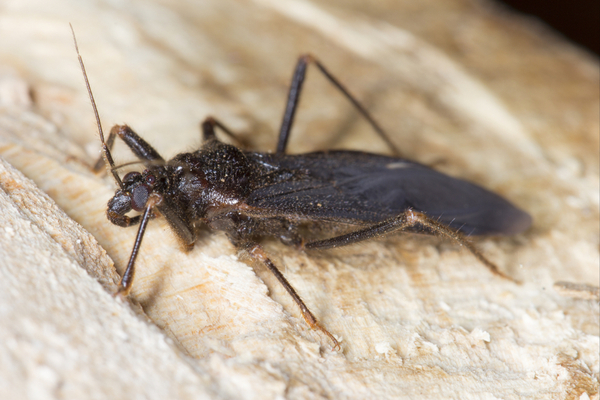
Masked Hunter Assassin Bug
First of all: get a load of that name. We told you we weren’t kidding around about true “scariest” contenders here. The Reduvius personatus belongs to the assassin bug family (yeah, there’s a whole family) of insects. Masked hunters are small, glossy dark brown or black insects with wide abdomens, horizontal distinctive “beaks.” Along with their name and fearsome appearance, assassin bugs are scary because of how they feed.
Masked hunters prey on smaller insects like bed bugs. Their “beak” mouthparts are actually hollow and sharp, like a syringe. They stab this mouthpart into their prey, then use it to inject a digestive enzyme into the victim’s body. This enzyme literally liquefies their vicitim’s insides, which the bug then drinks up through its beak–like a straw! That’s… probably the scariest thing we’ve ever heard. Before you pack your bags and move away, you should know that assassin bugs can’t drink your insides. They will bite you if they feel threatened (it’s about as painful as a wasp sting), but that bite isn’t dangerous. That’s gotta be some solace… right?
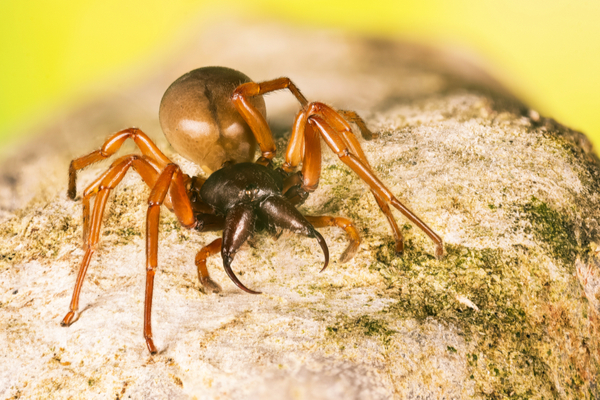
Woodlouse Spider
This spider has a lot of nicknames: “sowbug killer,” “woodlouse,” “pillbug hunter,” “literally the scariest thing I’ve ever seen.” Females are about ½ to ¾”, while males are generally less than ½” long. Their many names reference the fact that woodlouse spiders are predatory. They hunt at night and primarily feed on sowbugs and pillbugs.
Woodlouse spiders are easy to spot for a couple of reasons. Their coloration is distinctive: adults have a purple-brown body and bright orange legs. These legs are arranged largely in front of the spider’s body, enabling it to run very quickly. They also have large, scary forward-pointing fangs. The spider uses these fangs like a pair of scissors to grab its prey. It’s unpleasant. Luckily, Woodlouse spiders rarely bite humans. Even if one did happen to bite you, the bite wouldn’t be medically significant (read: dangerous). Unfortunately, we can’t say the same for the next spider on our list…
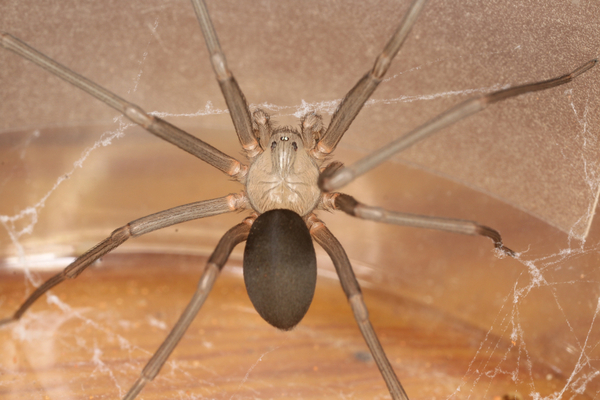
Brown Recluse Spider
Yes, unfortunately, the infamous brown recluse spider appears to have taken up residence in Michigan. Brown recluses are also known as “violin” or “fiddleback” spiders because of the dark, violin-shaped mark on their backs. They measure about 1.3 centimeters long (about the size of a quarter), and appear brown, grey-brown, or tan in color. Unlike most spiders, brown recluses only have six eyes.
Unlike the Woodlouse spider, the Brown recluse isn’t just scary. They’re also one of the most dangerous pests in Michigan. Brown recluse spiders may administer a potent hemotoxic venom through their bites. This venom may cause fever, chills, rashes, nausea, vomiting, or even necrosis, or cell death. Fortunately, brown recluse spiders are, well, reclusive. They’re not aggressive and prefer to run or hide from humans. Brown recluse spider bites are very rare, even if the spiders live among people. Brown recluse spiders aren’t the only venomous spider in Michigan, however…
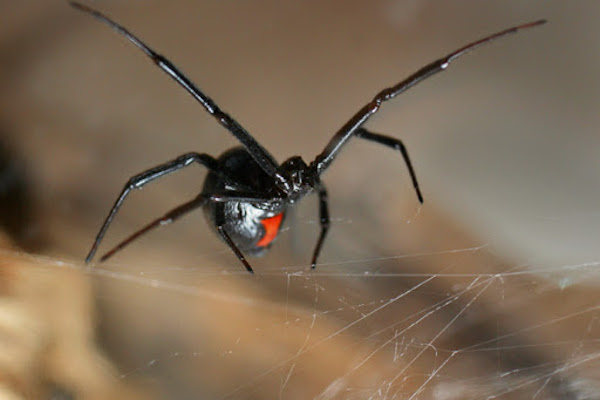
Northern Black Widow Spider
You’re probably already familiar with the Black widow. They’re arguably the most infamously scary spider in the world, much less in the US. And one particular species, the Northern black widow (Latrodectus variolus) lives in Michigan. Northern black widows are about the size of a paper clip. They’re mostly black in color, except for an hourglass-shaped red marking on their abdomens.
Black widows are considered the most venomous spider in North America. The venom they can inject via bites is considered 15 times more potent than a rattlesnake’s. Black widow venom is a “latrotoxin,” which means it attacks the nervous system. Their bites can trigger nausea, vomiting, stomach pain, fevers, and even more severe symptoms. Luckily, black widows bite humans very rarely, and even when they do bite they don’t inject much venom. Black widow bites are rare, but if a black widow bites you, you should take it very seriously.
From the scary dangerous to the just plain scary, Michigan has its fair share of monster pests to contend with. Luckily, you’ve also got your own personal monster slaying force: Griffin Pest Control.
If you’re losing sleep about the creepy-crawlies in your basement or attic, give us a call today. We’ll bust those pests before you can say “Happy Halloween!”

